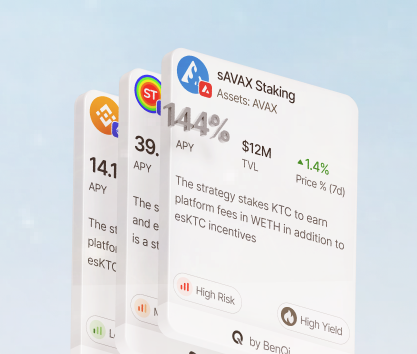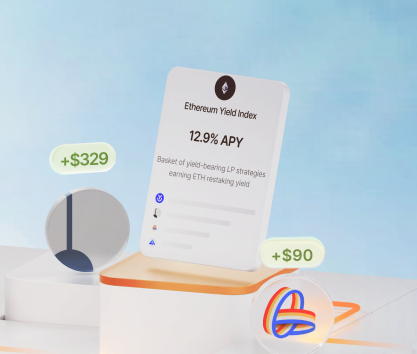While the biggest growers of 2024 were liquid staking and lending platforms, it is an absolute truth that the real star of the show was artificial intelligence. It was one of the most hyped sectors of the DeFi ecosystem. The applications of generative AI in tradfi seem limited and use cases for end users still revolve around content creation. However, in the world of crypto, AI is one of the most promising technologies.
With 10 new AI agent protocols and a strong shift toward the necessary computational infrastructure among RWA and projects focused on building distributed hardware networks, the surge in popularity of artificial intelligence was undeniable. Applications range from direct use in analytical systems to providing essential services to developers.
On all fronts, the decentralized finance ecosystem is being affected by the rapid adoption of various forms of machine learning, neural network models, and AI-enhanced systems.
Enhancing DeFi with artificial intelligence
This technology can be used for all sorts of purposes within the DeFi domain. It is a heavily digitized environment where AI agents feel right at home. Investors have been slowly catching up to the expansion of smart tech across various protocols, services, and companies surrounding the crypto ecosystem. However, the growth was modest despite the hype.
Understanding the potential and already implemented use cases is incredibly important for all crypto enthusiasts interested in allocating their capital effectively. Many experts believe that AI will be the fastest-growing sector of the DeFi ecosystem during the next decade. Statista says that the current estimation is that the AI market will grow at a CAGR of 27.6% until 2030 reaching a massive $826 billion.
Here are some of the use cases that highlight future and current trends in AI and decentralized finance:
- The hardware infrastructure is hugely important for the whole sector as it is the backbone of AI technology. Massive data centers require thousands of GPUs to run advanced machine-learning algorithms. Projects like Hyperbolic, IO_Net, and Akash are working on building decentralized GPU networks.
- Training data is another important aspect of machine learning. The quality of information fed to these systems directly affects outputs. Decentralization can be used to increase the efficiency of these processes. For instance, Vana is a decentralized autonomous organization that works on building user-owned data sets.
- New machine learning algorithms focused on transparency and clarity are often designed to prevent malicious development practices from affecting AI models. Sentient, Prime Intellect and Gensyn are great examples of projects focused on building complex infrastructures for projects interested in deploying ethical AI models.
- The evolution of DeFi with AI is not possible without functional technological platforms capable of providing the necessary environments for efficient building and effective research efforts. In the decentralized finance ecosystem, you already can invest in protocols like Virtuals, AI Rig Complex, Paal AI, Wayfinder, and many others.
- AI agents are the final product of all this hassle. There are many interesting applications that can be used directly in the DeFi ecosystem. Some agents are focused on analytics, others provide a better user experience by supplying tips, suggestions, and advice to newcomers. Projects like Turbo, AIC, Goat, and Zerebro are virtual influencers that have their own tokens.
To measure the impact of AI on DeFi, one has to dig deeper in some directions to find the coveted golden ore of 100x growth in the near future. Artificial intelligence is a huge financial bet in the real world with Nvidia, Meta, Google, and other tech giants having ballooning evaluations in the stock market. However, it is the same story in the world of decentralized finance. Many protocols are offering innovative solutions and investors are ready to dish out some cash.
Trends in AI and DeFi integration
The use of various expert artificial intelligence systems in the world of DeFi can be very fruitful. While there is only a handful or protocols that focus on the technology itself and AI agents as a product, the overwhelming majority of projects are implementing AI solutions to improve their features and infrastructures.
Here are some examples of successful projects using AI in DeFi:
- DeFi Agents AI is a rapidly growing protocol that focuses on developing AI-enhanced automated trading systems that can operate on centralized and decentralized exchanges. According to the research conducted by the UK Government and the US Treasury, up to 70% of all trades in the US are conducted using algorithmic trading. Most contemporary ATS designs are already enhanced with AI. The DEFAI token has been one of the most anticipated digital assets in 2024.
- Virtuals protocol is one of the biggest marketplaces for AI agents where capital holders can look for promising investment prospects. The platform has a serious problem as it does not have any methods of assessing the impact of AI on DeFi and social networks. They hope that the market will figure it out somehow. Some agents like Claira or Maya amass solid market caps reaching $150K. On the other hand, this marketplace is a breeding ground for pump-and-dump schemes.
- Rivo.xyz is a platform offering a wide range of vetted investment solutions that can be used by newcomers and veterans. Rivo does all the footwork for you and gathers valuable information about projects to identify their reliability, consistency, and potential. The Maneki AI agent is used primarily to enhance user experience. The introduction of such useful models demonstrates the impact of technology on the development of decentralized finance. Rivo is addressing the issue of difficult onboarding cited as the biggest hurdles for wider adoption of DeFi instruments.
As you see, artificial intelligence can be a way to enhance products, be a product, or add value through user experience improvement. Right now, the DeFi ecosystem is experimenting with all these development vectors allowing investors to make bets across a wide range of investment prospects.
The future of AI in finance
According to Markets and Markets, the volume of the AI finance industry will reach $190 billion by 2030 with an impressive CAGR of 30.7%. The share of generative AI in this volume is hard to measure with Precedence Research claiming that it was less than $1.52 billion as the industry struggles to find a proper use case for the tech outside of generating reports and providing textual insights.
Simultaneously, the tech-heavy DeFi ecosystem is banking on AI to change the way we understand and use financial instruments. It is also important to remember how communities influence innovation in DeFi and AI as many projects are governed by DAOs making actual enthusiasts and developers responsible for making the path forward.
Companies like Rivo offer a way to slowly introduce this technology to the DeFi market by using it for mundane operations like data gathering, user feedback collection, consumer experience, and more. It does not have to be a game-changing feature. Instead, it can make the life of an average DeFi user simpler and safer. Imagine that you can start a DeFi AI app download and it just makes your life easier! It is something that you can do with Rivo right now!









